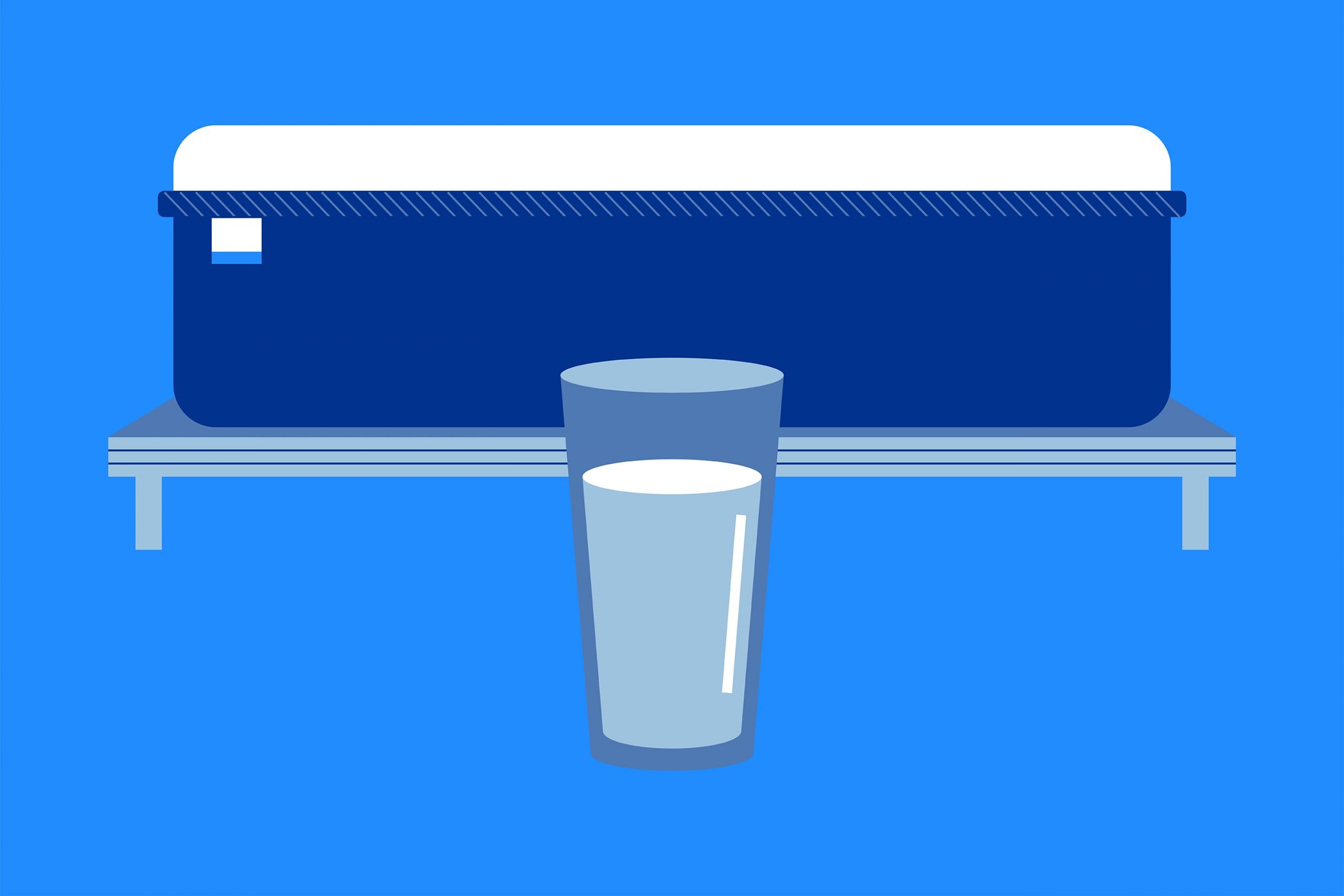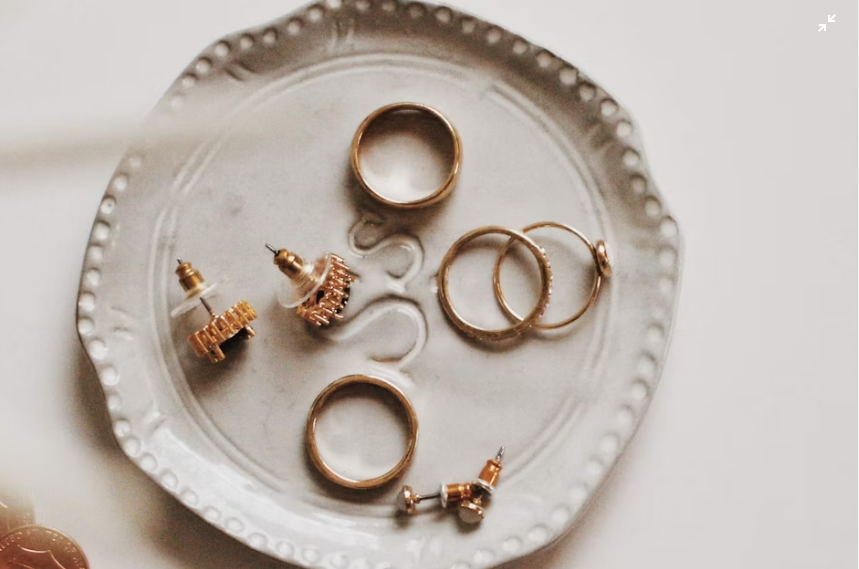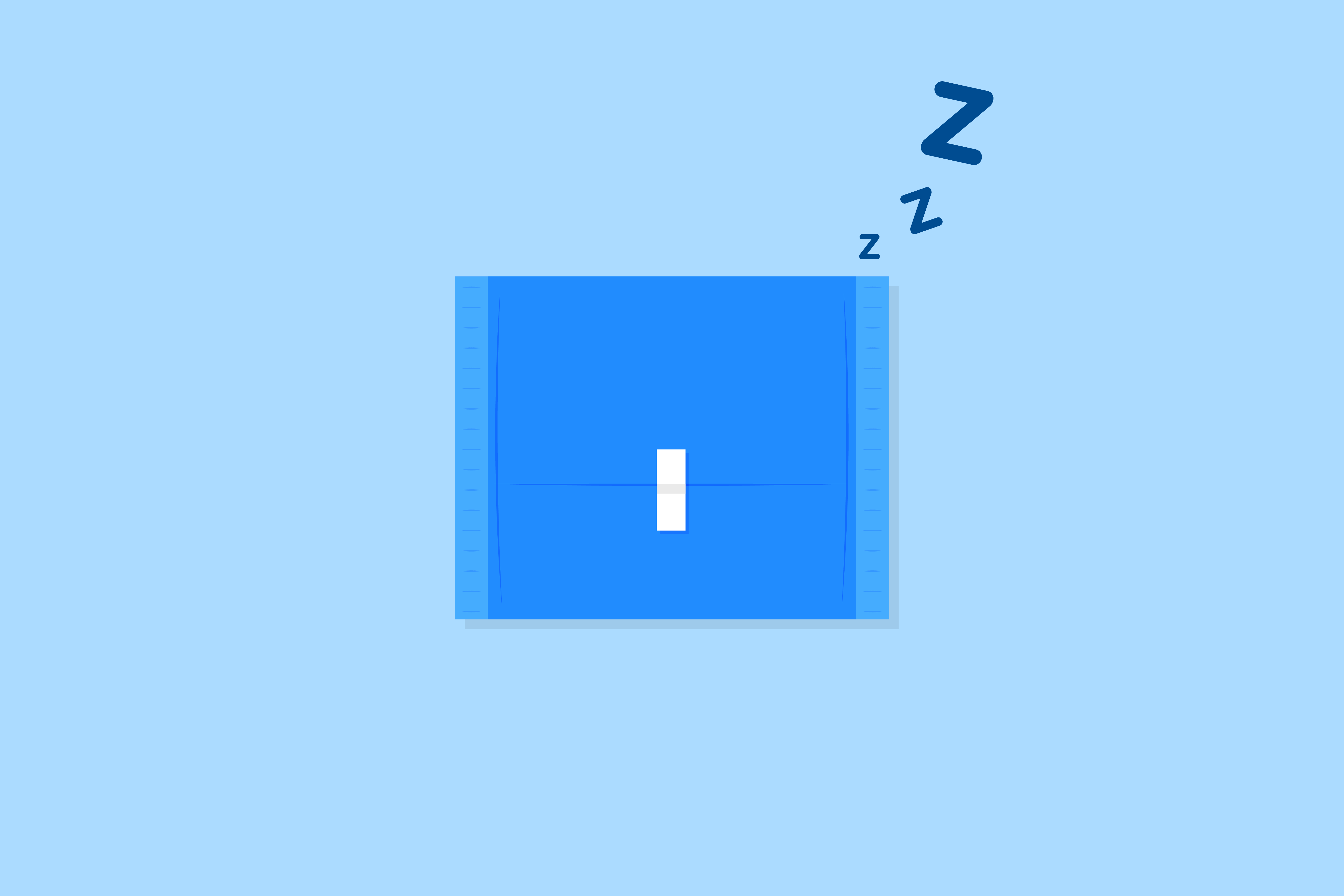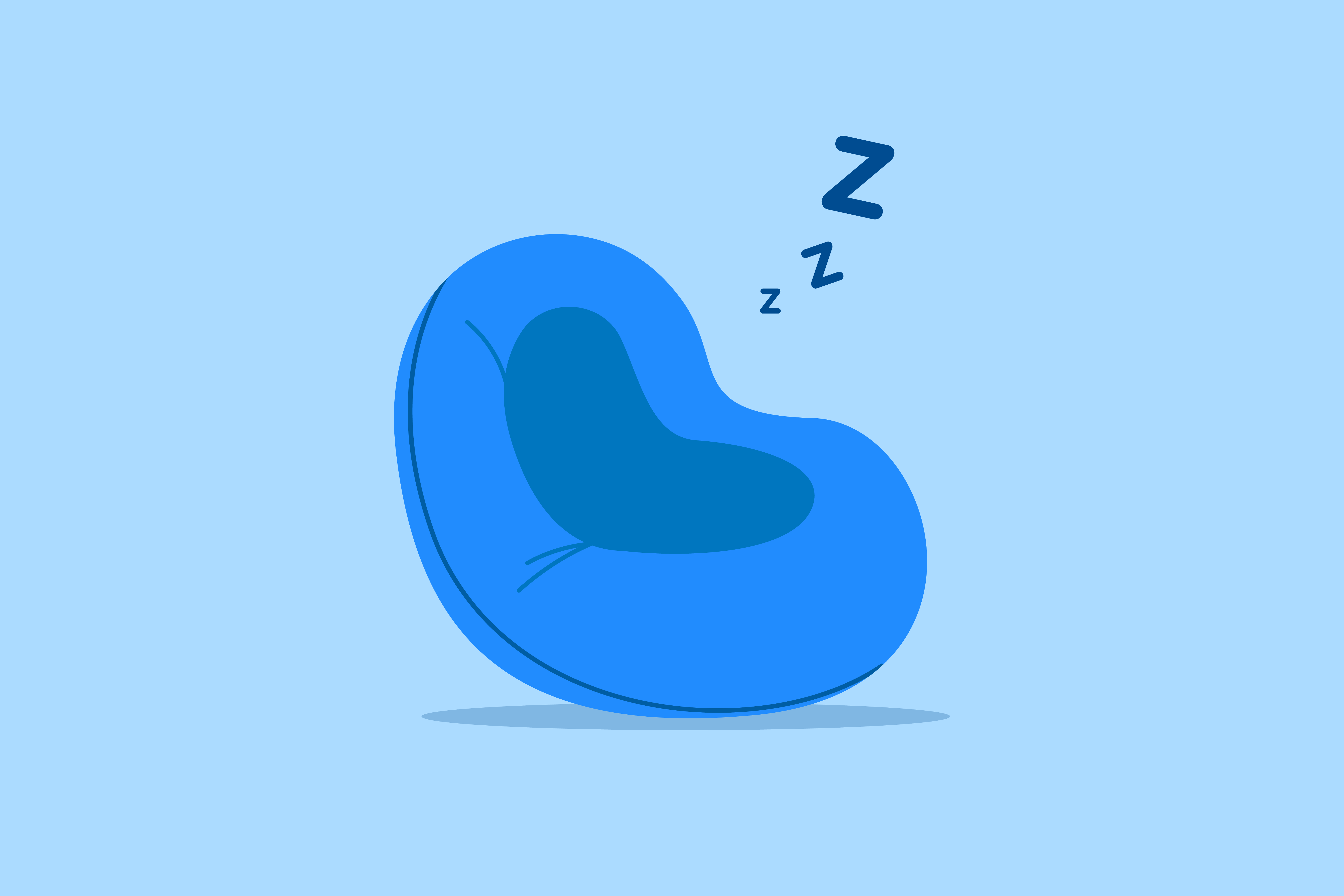Key Takeaways
- Advantages of Drinking Water Before Bed: Improved hydration can help prevent difficulty falling asleep due to thirst. Proper hydration before bed can aid in body temperature regulation, essential for a good night’s sleep. Adequate water intake supports better digestion, improved mood, and overall bodily functions.
- Disadvantages of Drinking Water Before Bed: Drinking excessive water before bedtime can lead to interrupted sleep as it may increase the need for nighttime urination. Interrupted sleep caused by excessive nighttime urination can have negative effects on mental health, including mood swings, anxiety, and depression.
- Recommendations: Stay hydrated throughout the day to minimize nighttime thirst. Limit water intake an hour or two before bedtime to avoid frequent trips to the bathroom during the night. Individuals with overactive bladders or underlying health conditions may need to consult with a healthcare professional for appropriate management.
Drinking water before bed is a controversial subject. For sure, there are advantages and drawbacks. Some people think drinking plain water can help you sleep better and improve your body’s ability to cleanse itself during sleep. Others think too much fluid intake can interrupt sleep and cause problems.
Advantages of Drinking Water Before Bed
There are a few advantages to staying hydrated during sleep. First, you just need to make sure you’re drinking water Verified Source National Library of Medicine (NIH) World’s largest medical library, making biomedical data and information more accessible. View source the right way to keep yourself hydrated without having to get out of bed for the bathroom all night.
Improved Hydration
Being dehydrated before bed can lead to thirst, leading to difficulty falling asleep. Of course, if you can’t fall asleep due to thirst, then you’ll need to drink water before bed. Keep in mind, your brain will sometimes trick you into feeling thirsty at night.
When your body begins to initiate sleep, it knows there will be a long period without hydration in the near future. It prepares for this by increasing thirst just before bed. That means you might be tempted to drink water right before you go to sleep.
However, it’s better to try staying hydrated throughout the day than increase your water intake just before bed. If you wake up thirsty in the middle of the night, try keeping a water bottle nearby to counter sleep disruption without drinking water before bed.
Body Temperature Regulation
Drinking cold water can help lower your body temperature and that’s vital for a good night’s sleep. So getting an adequate amount of cold water before bed may help encourage your body to start lowering its core temperature.
Improved Mood
Dehydration can lead to poor mood. Verified Source National Library of Medicine (NIH) World’s largest medical library, making biomedical data and information more accessible. View source So ensuring you go to bed hydrated can help you wake up on the right side of the bed, so to speak. Increasing your water intake during the day can also help you feel calmer and more content if you’re chronically dehydrated. So make sure you stay hydrated to improve your mood. Just don’t go to bed with a full bladder.
Better Digestion
Water acts as a natural cleanser to help the body remove waste that builds up during the day. Getting enough water Verified Source National Library of Medicine (NIH) World’s largest medical library, making biomedical data and information more accessible. View source increases blood circulation, which improves all sorts of bodily functions, including digestion, kidney function, and heart health.
Hot water specifically around bedtime may help you feel calmer and more relaxed when compared to cold water.
Some also claim that drinking hot water is better for digestion because hot water can help your stomach dissolve food faster. More scientific research is needed in this area. However, since warm water can definitely help you feel more relaxed and relieve nasal congestion, drinking warm water with lemon or a small cup of hot tea before bed might not be a bad idea.
Disadvantages of Drinking Water Before Bed
There are a couple of drawbacks to drinking water before bedtime. The biggest issue is that drinking several glasses of water right before bed can mess with your natural sleep by making it tough for you to sleep through the night.
Interrupted Sleep
Your body naturally reduces urine production Verified Source Medline Plus Online resource offered by the National Library of Medicine and part of the National Institutes of Health. View source during sleep so that you can get six to eight uninterrupted hours per night. This allows most people to sleep without disruption. Some people can go to the bathroom once or twice during the night and then go straight back to bed.
However, this isn’t how it works for many. Getting up in the middle of the night to use the bathroom can often lead to trouble getting to sleep. Even those who can easily fall asleep again after urinating will suffer disrupted and broken sleep if they have to do it several times throughout the night.
That’s what makes drinking water before bed a bad idea for many. Drinking a lot of water can increase urine production to the point that it disrupts the sleep cycle by necessitating multiple trips to the bathroom. And night after night of disturbed sleep or sleep deprivation can cause all kinds of negative health effects.
“Sleep serves a vital physiological function and is probably the single most important factor in exercise recovery,” says Dr. Nayantara Santhi. “Besides helping the body to recover from fatigue by repairing processes, sleep also plays a vital role on neurophysiology, cognitive function, and mood, all of which have implications for elite athlete performance.”
“Therefore, ensuring a good night’s sleep should be part of the foundation of our daily routine.”
Health Detriments
People commonly wonder how much sleep is needed. Everyone needs between seven and nine hours of uninterrupted sleep throughout the night. If drinking water before bed is causing you to get less sleep than that by disrupting your natural sleep-wake cycle, it can wreak havoc on your whole body.
Negative mental health impacts from sleep loss can show themselves quickly. Even short-term sleep deprivation can ruin your mood and make you irritable and fatigued. Long-term sleep deprivation can have its effects as well.
Insufficient sleep can lead to all kinds of issues like anxiety, depression, and cognitive problems. It can also make it difficult for you to regulate your emotions.
Weight gain is another problem that can arise when you don’t get a full night’s sleep. The human body needs sleep to regulate its appetite and metabolism. Lack of sleep can make you seek energy from calorie-dense, high-sugar foods. Many months or years of this can lead to an increased risk of obesity and also make it impossible to lose weight no matter how hard you try.
Heart disease also results from failure to get enough sleep. Heart disease can develop when you gain weight due to lack of sleep or insufficient sleep duration. Being sleep-deprived can also directly damage your heart and blood vessels by causing high blood pressure. Verified Source Centers for Disease Control and Prevention (CDC) The United States’ health protection agency that defends against dangers to health and safety. View source
Should You Be Drinking Water Before Bed?
That really depends on whether your body can handle the amount of water you’re drinking without keeping you awake all night. Some people find that anticipatory thirst right before bed can help them fall asleep without experiencing too much nighttime urination.
However, most people find it’s better to have their last glass of water an hour or two before sleep so they can sleep through the night. Most people may discover that drinking more water earlier at night can help them get enough water without disrupting their sleep.
Other people might have health conditions like an overactive bladder that make it harder for them to drink water before bed. With an overactive bladder Verified Source Mayo Clinic Ranked #1 hospital by U.S. News & World Report and one of the most trusted medical institutions in the world. The staff is committed to integrated patient care, education, and research. View source you feel a “frequent and sudden urge to urinate.” This can lead you to have to run to the bathroom many times a day and may also cause incontinence.
An overactive bladder isn’t just a daytime problem. This condition can interrupt your sleep frequently throughout the night. If you’re experiencing symptoms, talk with your doctor about certain medications or lifestyle changes that can help you get a better night’s sleep.
Even if you don’t have an underlying condition, it’s better to drink water and remain hydrated throughout the day. Having eight glasses of water from the time you wake up will ensure you’re going to bed at night well-hydrated. So you can avoid drinking water before bed.
How to Drink Water Before Bed
Believe it or not, there is a right and a wrong way to hydrate before you go to bed. The best way to hydrate is to do so throughout the day. You need at minimum 48 to 64 ounces of water per day. That translates to six or eight glasses. You should be drinking these glasses between meals and whenever you feel dry or thirsty.
You should also drink after exercise, physical work, or anything else that makes you sweat. Sweating causes you to lose water that you should replenish right away to maintain proper hydration after water loss. As a reminder, regular exercise can improve sleep habits, so it’s important to get the most of your sessions by staying hydrated.
You’re probably adequately hydrated if you rarely or never feel thirsty and your urine is light yellow to almost clear.
As long as you remain hydrated throughout the day, you should experience little to no nighttime thirst. And you can stop drinking water an hour or two before bed, no problem. This will allow you to both go to bed well-hydrated and avoid traipsing to the bathroom several times per night.
FAQs
Why do I always feel thirsty right before bed?
Theories abound as to why perfectly healthy people feel the need to start drinking water before bed when they weren’t thirsty before. It’s a common issue that happens to all of us. One plausible theory is that the body is preemptively hydrating before sleep to counteract an upcoming period of fluid deprivation.
Another reason you might feel overly thirsty at night is you have some kind of underlying health condition you’re not aware of yet. Perimenopause and menopause, for example, could cause you to experience increased thirst at night. Intense nocturnal thirst is also a symptom of diabetes, especially if you can’t seem to quench your thirst no matter how much you drink.
You could be feeling thirst before bed if you’re chronically dehydrated as well. If you’re not getting around 64 ounces of water per day, you could experience thirst at any time. But it might be especially likely at night after you’ve been running around dehydrated all day. That’s why you should be drinking water throughout the day rather than just at night.
How can I tell if I’m hydrated well enough?
Staying hydrated can prevent headaches, give you glowing skin, and increase your overall health. However, most Americans don’t know how much water they need to drink. So they walk around in a constant state of mild dehydration. You should be drinking 64 ounces of water or other fluids that can hydrate you throughout the day.
If you’re mildly dehydrated, it can be hard to tell. If you don’t feel thirsty, that doesn’t necessarily mean you’re not dehydrated. If you have dry eyes or a dry mouth, you feel tired or dizzy, or you aren’t urinating at least four times a day, you could be failing to drink enough and therefore living in a state of constant low-level dehydration.
Can drinking water before bed cause sleep deprivation?
Your body loses water throughout the day, and when you lose water, you need to replace it. However, increasing your fluid intake right before bed will proportionately increase your urine output as well.
Therefore, too much water before bed can make you sleep-deprived if it leads to night after night of multiple trips to the bathroom. Too many trips to the bathroom can lead to disrupted sleep patterns and eventually chronic sleep deprivation.
That means you should drink water normally up to an hour or two before bed. But you should consider decreasing your fluid intake before sleep to avoid having to use the bathroom all night.
Will lack of sleep harm my health?
Lack of sleep can absolutely harm your health. It can put you at risk of everything from diabetes to cardiovascular disease to obesity and more. It can also cause severe negative impacts on your overall mental stability.
Too little sleep or poor sleep efficiency can rob you of your ability to regulate your emotions. It can also lead to decreased mood and depression. It may also cause you to experience anxiety or lowered cognitive function. It can even cause memory loss and even dementia in older age.
That’s what makes it so vital for everyone to get a good night’s sleep every night. You literally cannot survive without it.
Does drinking water before bed help with weight loss?
If you drink too much water before bed, it may actually make losing weight harder. Some water before bed helps your body stay hydrated at night. However, too much water before bed can interrupt your sleep cycle and lead to a chronic lack of sleep. That, in turn, can increase your risk of obesity and hinder weight loss.
Low drinkers of water will want to up their intake during the day instead. That can help you both lose weight and go to bed healthy and hydrated without drinking too much water at night.
Bottom Line
Drinking water before bed is fine as long as you don’t overdo it. Try to get your eight glasses of water a day in well before bedtime. And if you must drink water before bed, try to limit the amount to as little as possible to avoid a dry mouth at night and thirst that interrupts your sleep. That way, you won’t be making trips to the bathroom all throughout the night.
About the author
Mitchell Tollsen is a graduate student and a freelance writer who’s contributed to the Early Bird blog for three years. Mitchell’s always been fascinated by the science of sleep and the restorative processes our bodies undergo when at rest. The self-titled “Sleep Expert” is always looking for ways to improve his shut-eye, and throughout the years has implemented numerous lifestyle changes and tried dozens of sleep-promoting gadgets to determine the best ways to truly get better rest.
View all posts





